Millions of French last night enjoyed freedom before the Covid curfew in Paris and other cities
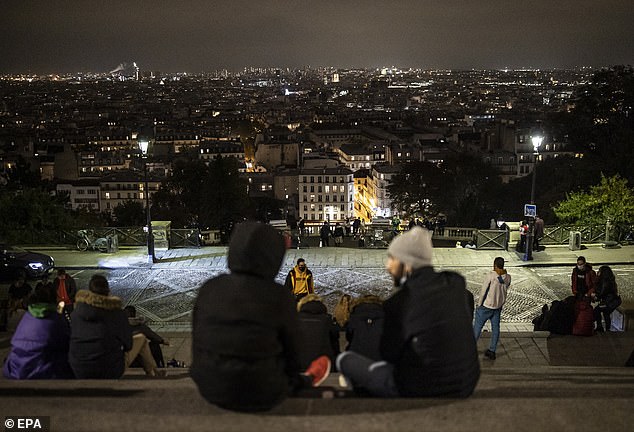
Millions of people across France’s largest city are enjoying their last night of freedom ahead of the strict 9 pm curfew that went into effect Friday night.
France is fighting a renewed pandemic that has now filled a third of the country’s intensive care units with COVID-19 patients and is once again putting Europe on the line.
President Emmanuel Macron has announced a curfew imposed on nearly 20 million people in the Paris region and eight other French metropolitan areas starting tonight in an effort to slow the tide.
France saw its total cases rise during the second wave of the Coronavirus, as it reported 25,000 cases on Friday, along with 178 deaths. The case numbers are an increase of 5,000 at the same time last week.
Millions of French are enjoying one last night of freedom before the Covid-19 curfew in Paris and other large cities goes into effect as the government aims to curb the rise in new cases.
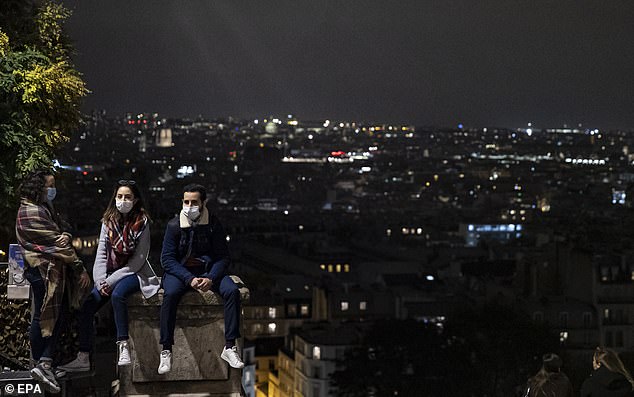
People wear face masks as they look at the Paris skyline from Montmartre at nightfall, just hours before a city-wide curfew goes into effect in Paris, France
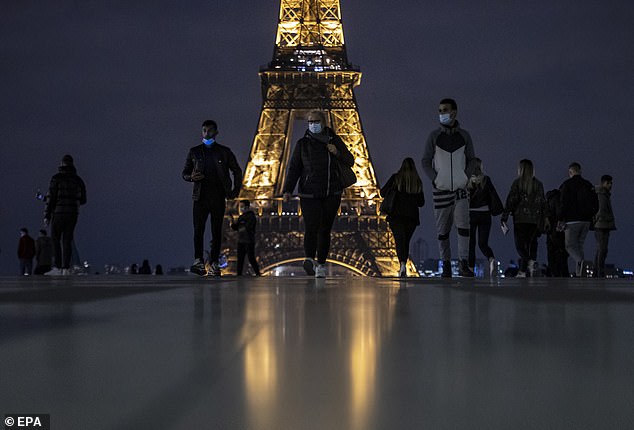
People wearing protective masks walk near the Eiffel Tower hours before the new curfew
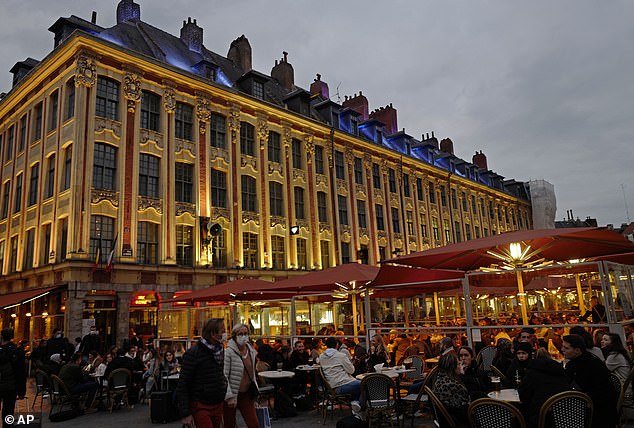
People enjoy a drink on the balcony of a restaurant in Lille, northern France, before curfew in the city
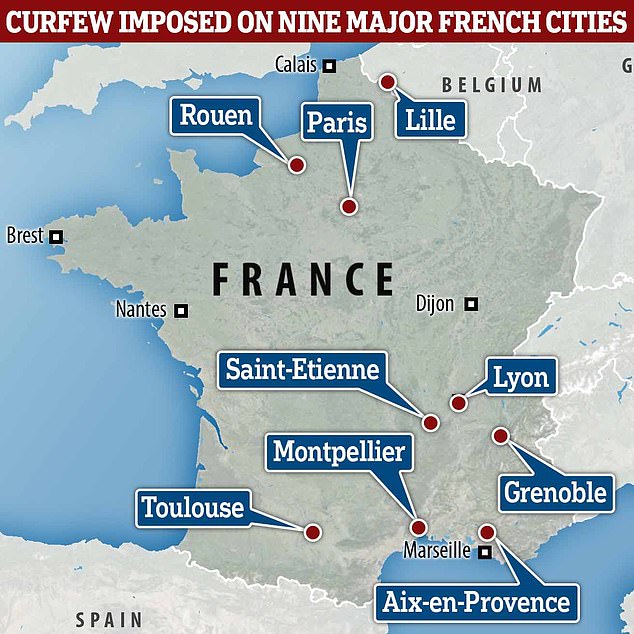
President Emmanuel Macron revealed earlier this week that the capital will now shut down for nine hours from 9 p.m. to 6 a.m., in an effort to stop the spread of the disease.
This drastic emergency measure was also applied to Lille, Rouen, Saint-Etienne, Toulouse, Lyon, Grenoble, Aix-en-Provence and Montpellier.
Macron said that all bars, restaurants, theaters and similar businesses will have to close at 9 pm on Saturday.
In a live television interview on Wednesday evening, French Macron confirmed that France is “now facing a second wave.”
“This virus, which we have known from the beginning and that infected us eight months ago, is coming back,” he said.
We did not lose control. We are in a worrisome situation and justify that we are neither ineffective nor in a state of panic.
It is equally concerning in other European countries, such as Germany which are also taking restrictive measures.
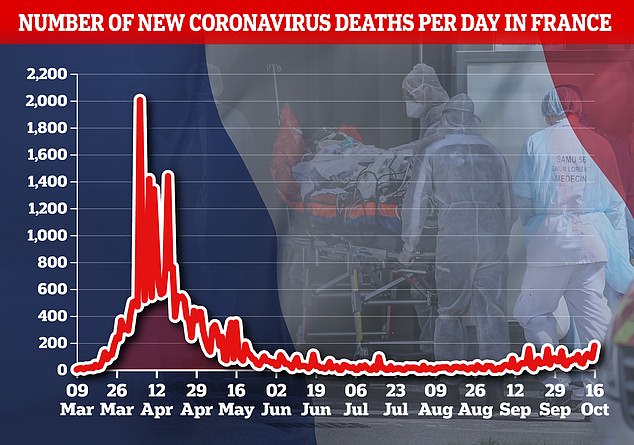
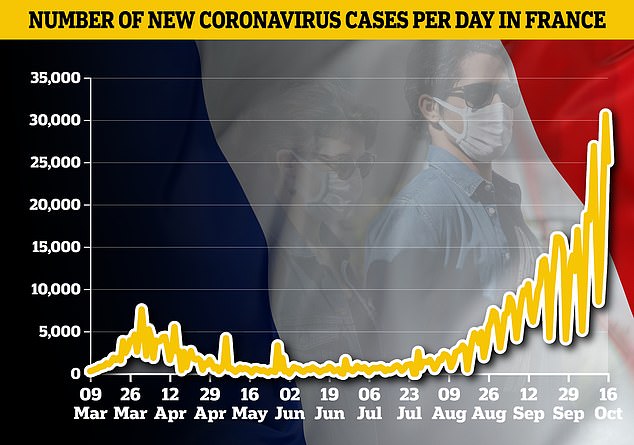
“Spain and the Netherlands are in a very worrying situation, and they have taken very restrictive measures in recent days.”
France’s health emergency was previously declared in March in response to the escalating infection with the first wave of Covid-19.
Macron said that state of emergency is now scheduled to be reintroduced, along with other, more stringent measures, from Saturday.
This came on the heels of the number of Covid-19 infections rising by 26,896 in 24 hours on Saturday – a record high since widespread testing began.
Macron’s last major television address was on Bastille Day, July 14, and since then wearing face masks has become mandatory.
France went into strict lockdown for the first time in March, when all bars and restaurants were closed, and people needed an hour’s exit permits.
But a panel of experts set up to assess France’s response to the pandemic said on Tuesday that there were “ clear failures in anticipation, preparedness and management. ”
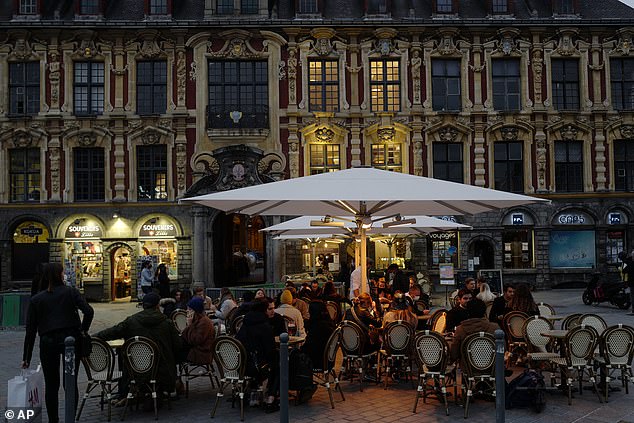
France deploys 12,000 officers to enforce the curfew, which takes effect Friday night
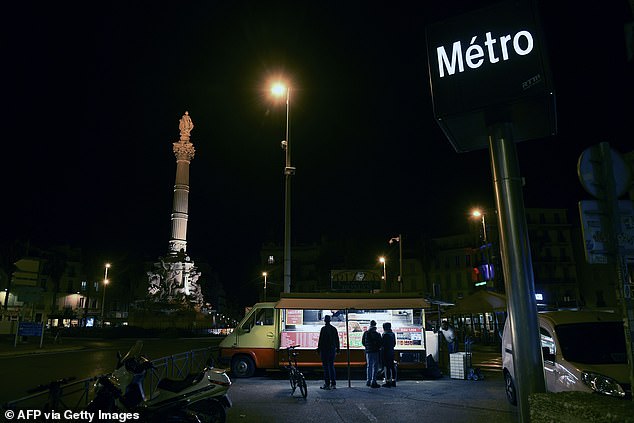
People gather around a street food truck in Marseille, southeast France, before curfew
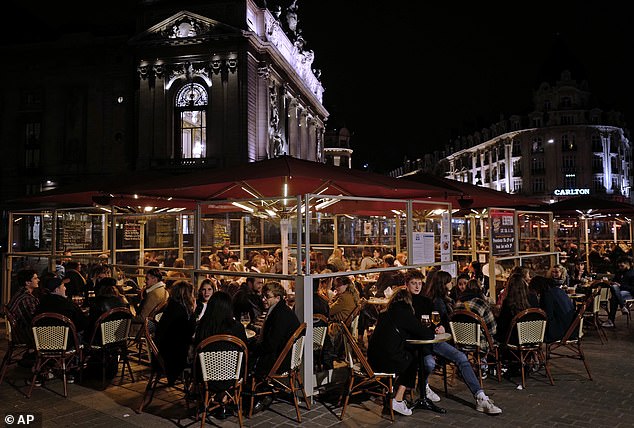
The government will spend another billion euros to help businesses affected by the new restrictions as cities, including Lille (pictured), face a strict curfew at 9 pm to curb new cases.
There were particular problems with the shortage of face masks early on, and authorities were slow to introduce the test.
Martin Hirsch, head of 39 hospitals in Greater Paris, warned that “by around October 24, there will be at least 800 to 1,000 Covid patients in intensive care, which represents 70 to 90 percent of our current capacity.”
Macron said emergency unemployment wages of 100 percent for the employer will be revitalized during the curfew in the entertainment sector, to include hotels, cafes and restaurants.
Macron said employees would get 84 percent of net wages.
Macron said he does not want “people to go bankrupt because of the curfew, as was the case during the lockdown.”
Those caught on the streets after 9 pm and before 6 am will face fines equivalent to £ 122 (€ 135), rising to £ 1,353 (€ 1,500) for repeat offenders.
Despite this, overnight public transportation will continue during the four weeks of the curfew, with essential workers permitted to pass.
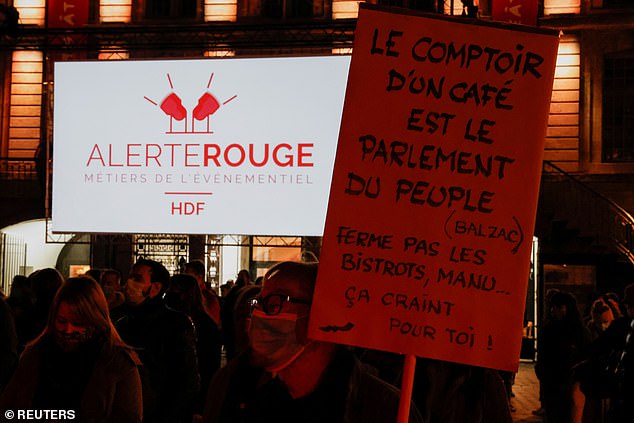
A man holds a sign reading “The tape is the parliament of the people” in Charles de Gaulle Square before the late-night curfew due to restrictions imposed on the spread of Coronavirus disease
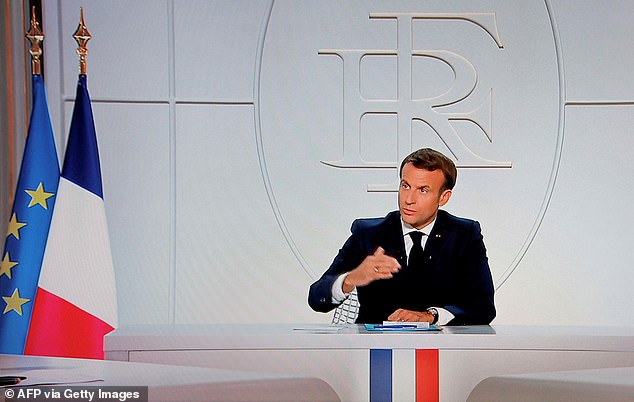
French President Emmanuel Macron addresses the nation during a televised interview from the Elysee Palace, announcing that Paris and eight other major cities will now shut down for nine hours from 9 PM to 6 AM, in an effort to slow the spread of Covid-19 which will last for one month.
The government continues to send conflicting messages about the virus. In addition to curfews in several cities, the prime minister announced a nationwide ban on public weddings Thursday, even as the president encouraged the French to travel as usual for the upcoming fall school holidays.
The government announced that it will deploy 12,000 police to enforce the new curfew, and spend another billion euros to help companies hit hard by the latest virus restrictions.
“Our citizens believe that this health crisis was behind us,” Castex said. “But we cannot live normally again as long as the virus is present.”
France records nearly 180 cases of the virus for every 100,000 people every week, for a total of 22,591 new cases on Wednesday. It has reported one of the highest virus-related deaths in the world, with more than 33,000 people lost.

Typical creator. Subtly charming web advocate. Infuriatingly humble beer aficionado.






